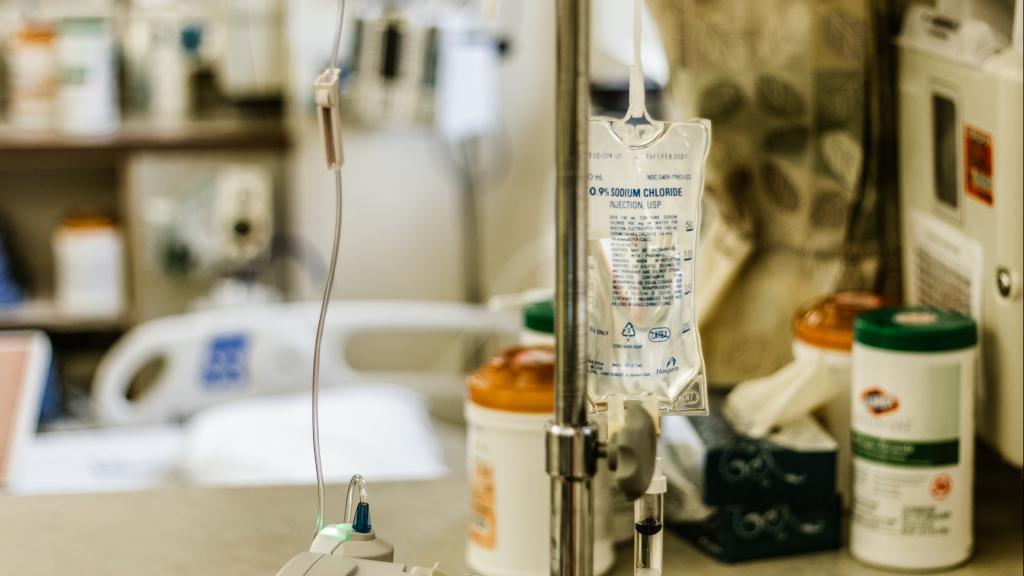
Nurse-led research aims to reduce the ‘needle’ in cancer treatment
Advanced Nurse Practitioner Caitríona Duggan's project aims to help reduce a significant source of anxiety and discomfort for some patients during their treatment, using a readily-available solution
While the prospect of starting cancer treatment is in itself daunting, some people are particularly wary of what might seem a more straightforward aspect for others – needles.
Depending on your perspective, having a needle inserted might just be a regular part of common occurrences like getting a vaccination, or it could be something to be dreaded. Cancer patients receiving chemotherapy may need to do this multiple times each week to insert cannula for treatments, and this fear can be amplified for the estimated 1 in 4 patients who require repeated cannulations where a vein is missed.
Whereas the narrative can sometimes focus on patients being ‘difficult’ around needles, Portiuncula-based Advanced Nurse Practitioner (ANP) Caitríona Duggan and Dr Peter Carr from the NUIG School of Nursing and Midwifery are looking to take positive steps to improve the experiences of such patients through research.
Through their €160,000 Cancer Nursing Research Award made available by the Irish Cancer Society they are trialling using portable ultrasound machines to give a more accurate reading of the vein location, which they hope will remove much unnecessary stress and anxiety for patients who are already going through a difficult enough time with treatment.
“I remember a patient telling me how you’re educated about the side-effects of chemotherapy and you expect them, but that you don’t expect the stress that something like this can cause and you don’t think about it when you hear about cancer, but that person said it’s been actually the most stressful part for them, so it’s definitely a problem,” says ANP Caitríona Duggan, who is also President of the Irish Association for Nurses in Oncology.
Dr Peter Carr adds that the ultrasound technology will provide important data on everything from vein size, quality and blood flow so that in time they can improve insertion success and reduce complications with infusion treatment, in what would be a combined win for all of cancer and patient care, nursing, and vascular access science.
The pair are looking to apply a ready-made solution to the ongoing problem of repeated drip insertions by training a handful of nurses in each Saolta hospital to use ultrasound technology. Once this is done, it can be as simple as using a probe and a smartphone app to provide the visuals.
ANP Duggan is passionate about opportunities such as the Irish Cancer Society award being made available to help nurses develop their research skills, and is grateful for the immense support of NUIG Saolta in making this possible.
“Nurses have been involved in gathering data for research for so long, and the next step is to start leading out on the findings of this as well.
“Awards like this are crucial because the nursing profession can be so busy that research in the clinical setting can fall to the side. I am excited about the opportunity to work with Dr Carr who is an internationally respected clinical researcher in intravenous access, our Public and Patient Involvement team, and the wider cancer research team at NUIG Saolta. I feel the quality of clinical research we are planning in evaluating ultrasound technology will benefit our patients and highlight positively that nurses can lead research.”
The work of Irish Cancer Society funded researchers is made possible through the kind support of the public.
To help support our cancer research please visit www.Cancer.ie/Donate
Contact the Irish Cancer Society Support Line
If you have worries or concerns about cancer, you can speak confidentially to an Irish Cancer Society Cancer Nurse through the Freephone Support Line on 1800 200 700.
Monday to Friday, 9.00am - 5.00pm

For more information
Phone
1800 200 700

